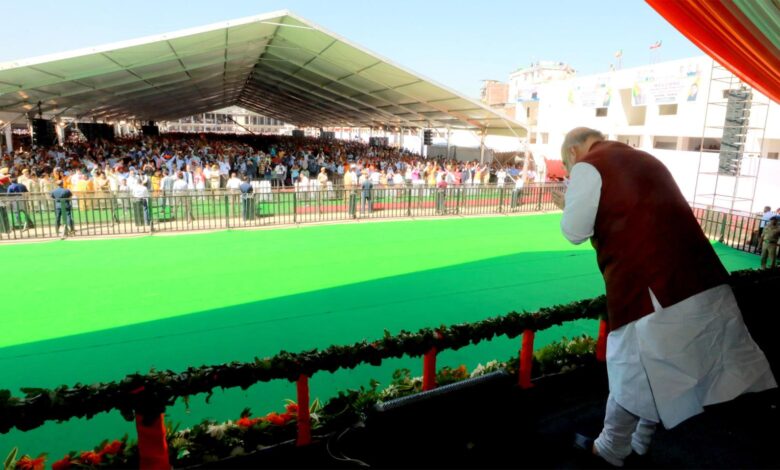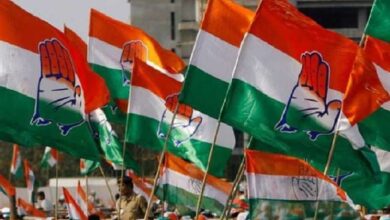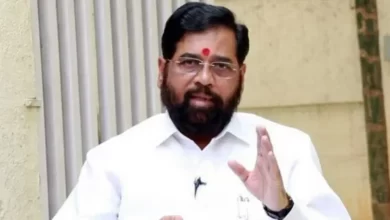BJP’s big bet of cultivating Pahari-speaking people

Most of the people speaking Pahari language are in Rajouri and Poonch districts of Jammu division. While Baramulla, the most Pahari-speaking in Kashmir division, Lives in Kupwara and Bandipur districts. Anantnag of Kashmir Valley, Kulgam, Shopian, Parts of Pulwama and Ganderbal also have Pahari-speaking settlers. The total population of the Pahari-speaking people is said to be around 12 lakhs.
Jammu and Kashmir
During his recent visit to Jammu and Kashmir, Home Minister Amit Shah, while addressing a massive rally in the border town of Rajouri, assured the Pahari-speaking people of Scheduled Tribe status on par with the Gujjar-Bakkarwal community. From time to time the demand of the Pahari-speaking people seems to be fulfilled. By announcing Scheduled Tribe status for Pahari-speakers, Home Minister Amit Shah has tried to appease the vast section for whom the Bharatiya Janata Party was considered politically untouchable till now. The announcement of the Home Minister is being seen as a big political gamble.
Though the Gujjar-Bakkarwal community had been continuously opposing the grant of Scheduled Tribe status to the Pahari-speaking people, but Home Minister Amit Shah has emphatically tried to assure the Gujjar-Bakkarwal community that the reservation given to the Pahari-speaking people will be done away with. There will be no impact on any kind of benefit being received by the Gujjar-Bakkarwal community.
It is noteworthy that the Gujjar-Bakkarwal community has the status of Scheduled Tribe since 1991. Ever since the Gujjar-Bakkarwal community got the status of Scheduled Tribe, the Pahari-speaking people have been asking for the same facility for themselves. There has been a tussle between the two sections for the last several years over this demand and the Gujjar-Bakkarwal community has been continuously opposing that the Pahari speaking people should not be given tribal status at any cost. On the other hand, the Pahari-speaking people also continued their struggle from every platform and were constantly under pressure from their side to demand Scheduled Tribe status. In almost every election also, this issue continued to heat up and all the political parties in their respective times also assured the Pahari speakers that they would get the status of Scheduled Tribes.
But a concrete initiative in this direction was seen when the Bharatiya Janata Party government came to power at the center and the Bharatiya Janata Party started focusing its attention entirely on the Pahari-speaking people on priority. There have been constant indications from the Bharatiya Janata Party that the Pahari-speaking people will also get the status of Scheduled Tribes.
In this connection, taking some important steps after the abolition of Article 370 on August 5, 2019, Justice GD Sharma Commission was constituted on June 19, 2020, to review the issues of economically, socially backward Scheduled Tribes and Scheduled Castes. . This commission has recommended the grant of Scheduled Tribe status to the Pahari-speaking people.
There is a huge diversity among the Pahari-speaking people
Muslims are in majority among the Pahari-speaking people, but there is also a huge diversity among the Pahari-speaking people. Away from religion and caste, the Pahari language is an important major link between all these. Pahari language is also called Pothwari language. This link of language makes this class hill. This class includes various sections of the Muslim community as well as the Hindu and Sikh communities. Most of the people speaking Pahari language are in Rajouri and Poonch districts of Jammu division. Whereas most Pahari-speaking people in Kashmir division live in Baramulla, Kupwara and Bandipur districts. Parts of Anantnag, Kulgam, Shopian, Pulwama and Ganderbal in the Kashmir Valley are also inhabited by Pahari-speaking people. The total population of the Pahari-speaking people is said to be around 12 lakhs.
The Pahari-speaking people have long had a strong presence in the political and administrative circles of Jammu and Kashmir. The hill leadership has been continuously emerging from Rajouri and Poonch districts of Jammu division and has influenced the politics of the state with full force from time to time.
Achieving Scheduled Tribe status for the Pahari-speaking people, apart from being a sentimental issue, has now become a matter of honour. The conflict between the Pahari-speaking people and the Gujjar-Bakkarwal community has existed for a long time and has its own historical and political reasons. Both the communities have also been politically powerful and various political parties have used both as vote banks. But it is a great fact that both the communities have a tremendous influence in the politics of Jammu and Kashmir. It has not been easy for any political party to ignore both.
Gujjar-Bakkarwal community has been protesting
The Gujjar-Bakkarwal community has been continuously opposing the grant of Scheduled Tribe status to the hills. The leaders of the Gujjar community believe that the grant of Scheduled Tribe status to the Pahari-speaking community is totally wrong. They say that there is no basis for granting Scheduled Tribe status to Pahari-speaking people and such a demand is not justified in any way. The leaders of the Gujjar community completely deny the existence of the Pahari-speaking class.
Gujjar leader Anwar Choudhary says that Pahari-speaking people already have four percent reservation in government jobs. Apart from this, being a resident of backward area, he has got reservation in ‘Backward Area Resident’ (RBA). Not only this, Pahari-speaking people get the benefit of reservation even if they are residents of the Line of Actual Control (ALC). Apart from this, many other benefits have also been available to the Pahari-speaking people.
Anwar Choudhary vehemently denies the claim of the hills and says that the hills are not tribes in any way. Chaudhary says that there is no historical evidence to prove that the Paharis are a tribe. They say that with the hills getting the status of a tribe, the very purpose of the Scheduled Tribe status to the Gujjar community will be ruined. According to him, the Pahari-speaking people include the upper castes of the Muslim community namely Syed, Qazi, Pir, Baig, Raja, Malik, Mirza, Khan, Rajput etc. While Hindus and Sikhs are also Pahari-speaking. All these people are considered to be economically, educationally and socially prosperous. Whereas the Gujjar-Bakkarwal, Gaddi, Sippy and Shina communities are completely a tribal class. Not only this, Gujjar-Bakkarwal, Gaddi, Sippy and Shina are also very backward class socially, educationally and economically.
Gujjar leaders also say that none of the various commissions constituted by different governments from time to time have ever described the hills as a tribal group. These commissions include Gajendra Gadkar Commission, Sikri Commission, Wazir Commission and Anand Commission. Strongly opposing the grant of tribal status to the hills, Gujjar leader Anwar Choudhary, giving various arguments, citing the Kaka Kalekar Commission, states that this commission, set up in 1953, has decided to grant tribal status to any class on the basis of language. was opposed.
Those opposing the grant of Scheduled Tribe status to the Pahari-speaking people consider being a ‘Pahadi’ as a very vague definition. His question is how will it be defined who is a ‘hill’? Will one be called Pahari just by speaking Pahari language? The objectors are arguing that all those who live in inaccessible mountainous areas should be considered as hills. It is not justified to consider those who use only Pahari language as ‘Pahari’. It is noteworthy that most of the area of Jammu and Kashmir is mountainous and many areas of districts like Kathua-Doda-Kishtwar-Ramban, Poonch and Rajouri are very inaccessible even from Kashmir Valley.
Bharatiya Janata Party can get benefit
The manner in which Pahari-speaking people gathered in the Rajouri rally of Home Minister Amit Shah on October 4, it is clear that the Bharatiya Janata Party has continuously worked at the grassroots level to cater to this class and its benefits to the party on a large scale. have been found . Seeing the clear stand taken by the Bharatiya Janata Party on the question of granting Scheduled Tribe status to the Pahari-speaking people, the Pahari-speaking people have started looking towards the party with great hope.
The way people from far-flung areas of border Rajouri and Poonch districts turned up for the rally, it was clear that the people were quite sure that they would get the ST status. Huge crowds of Pahari-speaking people chanting ‘Bharat Mata ki Jai’ and Vande Mataram, reached Shah’s rally and rubbished the notions that the people of Rajouri-Poonch were angry with the abrogation of Article 370.
After Home Minister Amit Shah announced Scheduled Tribe status to Pahari-speaking people, some necessary formalities are yet to be completed. But it is clear that the Bharatiya Janata Party is going to get tremendous political benefits from this decision. In fact, the hopes and aspirations of the Pahari-speaking people are associated with this issue, while the politics of Jammu and Kashmir is also going to be affected on a large scale. Till now the Pahari-speaking people have been supporters of the National Conference, the Congress and to a lesser extent the People’s Democratic Party (PDP). But the way in which the Bharatiya Janata Party has paid attention to the demands of the Pahari-speaking people, the Bharatiya Janata Party is becoming the first choice of almost all the Pahari-speaking people. The situation is that in the changed situation, the Pahari-speaking leaders of the National Conference, Congress and PDP have adopted a mysterious silence.
It is also not that the Bharatiya Janata Party has tried to make inroads only among the Pahari-speaking people. The party has left no stone unturned to woo the Gujjar-Bakkarwal community before announcing Scheduled Tribe status for Pahari-speaking people. A few days ago, on September 11, by nominating Ghulam Ali Khatana from the Gujjar community to the Rajya Sabha, the Bharatiya Janata Party made a big effort to reach out to the Gujjar-Bakkarwal community. This was the first time in the political history of the state that someone from the Gujjar-Bakkarwal community was nominated to the Rajya Sabha.
After the nomination of Ghulam Ali Khatana from the Gujjar-Bakkarwal community to the Rajya Sabha, the Bharatiya Janata Party has thrown a big political dice by now announcing the Scheduled Tribe status to the Pahari-speaking people. It is noteworthy that the Pahari-speaking and Gujjar-Bakkarwal community has influence in about 20 assembly seats. At present, no party in the opposition has any bite on this bet of the Bharatiya Janata Party.






